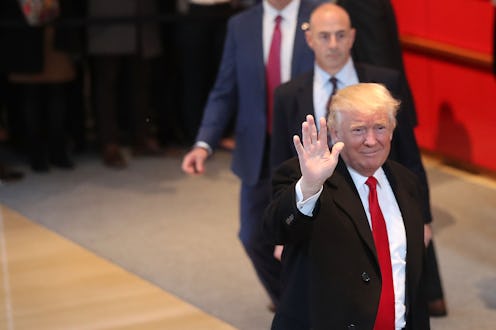News
Don't Believe the Hype About Trump's Carrier Deal
This was supposed to be one of the first great accomplishments of Donald Trump's presidency. After the president-elect met with officials at Carrier, a supplier of industrial products like air conditioners and furnaces, the company announced that it agreed to keep half of the 2,000 jobs it planned to move to Mexico. Many Hoosiers were thrilled, and the move seemed to signal the shift toward focusing on working-class Americans that he promised throughout his campaign. But even for the 1,000 workers whose jobs will reportedly get to stay in the United States, I believe Trump's Carrier jobs deal is nowhere near as good as it looks on the surface.
One caveat: It is important (and dare I say it, good) that a president-elect is taking a specific interest in instances in which companies are moving jobs overseas. However, the real way to address this problem would be to talk with the heads of such companies and address the systemic problems that motivate outsourcing, not to convince a single company to keep half of jobs in a single state as a favor to the soon-to-be president. Furthermore, as traditional manufacturing jobs are lost because of technological advancement, brokering individual deals fails to help working-class Americans in the long term.
Little is known publicly, as of this writing, about the specific terms of the Carrier deal, but some are already celebrating. Regarding the unknown components of the deal, Fox News contributor Liz Peek wrote, "We don't know and we don't care." From my perspective, this willful ignorance about the matter is astounding, and those quick to praise Trump should pause and consider the consequences of the deal.
Here's what we do know: The New York Times reported that in exchange for keeping 1,000 jobs in Indiana, Trump is expected to "be friendlier to business by easing regulations and overhauling the corporate tax code," adding that the state of Indiana will also provide "economic incentives" for Carrier to stay.
This deal sets a terrible precedent. Trump's actions may encourage companies to threaten to eliminate jobs in order to gain leverage with federal policy. As Alex Shepherd at The New Republic wrote, "American business owners can now treat their workers as hostages, demanding that the president of the United States pay them ransom in the form of tax breaks and other favorable policies."
Furthermore, as MSNBC's Chris Hayes suggested in a tweet, this deal makes it appear as if the president-elect is offering a "big bribe" to Carrier to stay, promising to ease their taxes in exchange for a few thousand jobs.
Americans don't know which deregulations were promised, and thus it is difficult to guess how these changes will affect workers. However, we can be sure that deregulation at the federal level would have a much broader impact than the retention of 1,000 jobs in Indiana.
